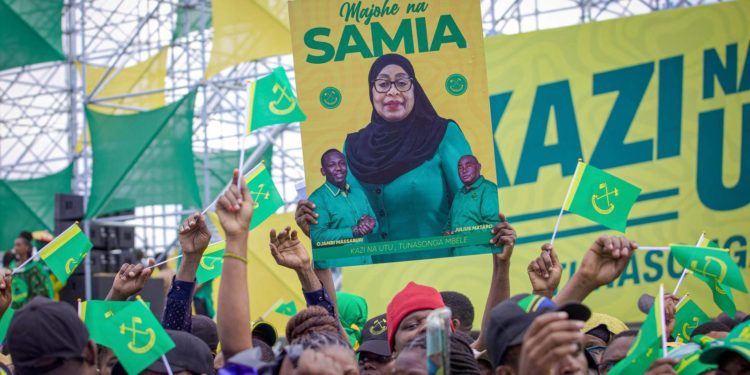Tanzania is facing widespread unrest following the October 2025 general election, where President Samia Suluhu Hassan was declared the winner with an overwhelming 97 percent of the vote. What was expected to be a celebration of democracy quickly turned into one of the country’s most volatile political moments in recent years.
The ruling party, Chama Cha Mapinduzi (CCM), has maintained political dominance since independence. However, this election raised serious concerns after major opposition figures were disqualified or barred from running. Many Tanzanians and international observers questioned whether the process was free or fair.
In the days after the results were announced, protests broke out in major cities such as Dar es Salaam, Arusha, and Mwanza. Opposition groups claimed hundreds of people were killed or injured as police and military forces cracked down on demonstrations. Authorities denied excessive use of force but admitted that there were “isolated incidents of violence.”
Internet access and social media platforms were restricted across the country during the protests, making it difficult for journalists and citizens to share real-time updates. Human rights organizations have since called for independent investigations into reports of extrajudicial killings, unlawful detentions, and suppression of media freedom.
Regional and international bodies, including the African Union and SADC, criticized the election for failing to meet democratic standards. Observers cited a lack of transparency, voter intimidation, and government control over electoral bodies.
Despite the controversy, President Hassan was sworn in for a new term and pledged to focus on national unity, economic growth, and stability. She dismissed foreign criticism as interference in Tanzania’s internal affairs, emphasizing her government’s commitment to “sovereignty and peace.”
Analysts warn that the unrest could have lasting implications. Persistent protests, restrictions on free speech, and loss of public trust may damage Tanzania’s image as one of East Africa’s most stable nations. Investors and development partners are also likely to watch closely as the country navigates this period of tension.
As calls for accountability continue, the Tanzanian government faces a defining test: whether it can balance political control with democratic reform and human rights protection. The coming months will determine whether Tanzania moves toward reconciliation or deeper political polarization.

















